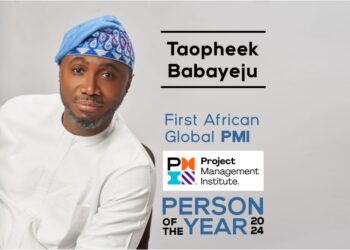There are numerous advantages to becoming a freelancer today, especially with the reality of inadequate employment opportunities in the country to accommodate the ever-increasing graduate population. As a freelancer, you get to create opportunities for yourself and, if you are lucky, get to enjoy more flexibility and earning mobility than your traditional 9-to-5 worker.
However, becoming a freelancer comes with a high risk level. If done wrongly, you put yourself at risk of poor performance, diminishing client trust, experiencing burnout or even recording financial loss.
Whether you are kick-starting your freelance journey or you have been at it for a minute, here are 5 common pitfalls you may experience as a Nigerian freelancer and proactive measures to avoid them.

Underpricing Your Services:
Not knowing how to price your services properly is a common pitfall that can affect every freelancer, but as a Nigerian freelancer, it is even trickier.
On one end, desperation to land that gig might cause you to underprice your services. This is a recipe for disaster for a plethora of reasons. For starters, in respect to the cost of taking on a job, underpricing may often lead you to operate at a loss. Furthermore, without due consideration of the effort, intensity and time demands of a gig, accepting a tasking workload without the appropriate compensation may also lead to burnout and poor performance, which negatively impacts your output and integrity as a freelancer.
On the other end, some freelancers get ahead of themselves and make the mistake of overpricing their services. Though more money (in isolation) has never hurt anyone, charging too much in some cases is really just synonymous to shooting yourself in the leg as a freelancer. Any high earning freelancers you see did not begin to rake in those big deals simply by dreaming big, it takes time to build your competency and reputation to the stage where your value becomes undeniable. Charging high as a freelancer without going through the right process will make you lose out on the opportunity to build and to learn and will chase clients away.
When pricing, it is in your best interest to give consideration to the market for your service, the associated workload and whether or not it is a befitting compensation for the effort, time and logistics that will go into getting a good job done.
Poor Payment Systems and Agreements:
Nothing is sadder than delivering quality work only to get ghosted or delayed when it’s time to get paid. Unfortunately, this happens far too often to freelancers in Nigeria. One major pitfall is not having a clearly stated payment agreement with your client before starting a project. Whether it’s an upfront payment, milestone-based payments, or full payment after delivery, you need to have this discussed and agreed on and written in contracts.
Another issue is using poor payment channels. Some freelancers use informal methods or accounts that are liable to network failures. As a Nigerian freelancer, you should explore safer payment channels such as Payoneer, Grey, or even local payment gateways with international reach. Consider creating professional invoices using apps like Wave or Zoho to give your transactions more structure and legitimacy.
By clearly stating your payment terms and using reliable methods, you protect your time, effort, and peace of mind.
Skipping Contracts, Invoices, and Branding
A lot of freelancers are eager to take on projects, but they sometimes neglect the basis of professionalism, such as contracts, invoices, and branding. Ignoring these can lead to scope creep, miscommunications, and underpaid work. Both parties’ expectations, what you will deliver, when you will deliver it, and how you will be paid are all written out in a contract. Without it, everything is based on assumptions.
Invoicing is just as important. It assists you in keeping organised, tracking your earnings, and following up on payments. It also sends a message to your client that you’re not just doing side gigs , you’re running a business. Then there is the branding. Your online presence, from your logo to your social media and portfolio, conveys how seriously you take your craft. Clients often judge you before even speaking to you.
Don’t underestimate the power of looking professional. Contracts, invoices, and consistent branding all help position you as a credible, reliable service provider.
Unreliable Power and Internet
Let’s face it, the power and internet situation in Nigeria can be a serious hurdle. As a freelancer, your ability to meet deadlines and communicate consistently with clients depends heavily on access to stable electricity and internet. Many promising projects have been lost simply because of a missed Zoom meeting, a delayed delivery, or poor communication caused by a power outage or bad network.
This is why you need to be proactive. Invest in alternatives like a generator, inverter, or power bank for your devices. For the internet, consider having at least two providers, maybe a primary MiFi and a mobile data backup, so you’re not left stranded when one fails. Also, be transparent and clear with clients. Let them know if there are any delays due to technical issues; most will understand if you’re honest and communicative.
In freelancing, reliability is everything. Your clients don’t want excuses, they want solutions. So, plan for the worst while delivering your best.
Struggling to Build Trust and Reputation
Trust is your currency when it comes to freelancing. Yet, many Nigerian freelancers struggle to build it because they either don’t understand its value or they expect it to happen overnight, and it doesn’t work that way. Clients want to know that you’re not only skilled but also dependable. Switching from one gig to another without building a consistent reputation or asking for feedback and testimonials.
Timely delivery, clear communication, and constant quality are the foundations of trust. However, positioning yourself is just as important as the work itself. Do you have a portfolio? Are you active on platforms like LinkedIn or Fiverr? Do you respond to inquiries professionally? These things matter.
Take every job as an opportunity to leave a lasting impression. Ask for reviews. Showcase your work. The more trust you build, the easier it becomes to land better-paying, long-term clients who value your services.
In conclusion, as a Nigerian freelancer, you are bound to face a lot of hurdles, but don’t fret! With the right strategy, you can make the most of your freelancing career. Having an awareness of the highlighted crucial pitfalls and how to navigate through them is a good start.
_____________________________
Victor Tubotamuno, a dynamic entrepreneur who has a degree in Theatre Arts from the University of Port Harcourt, started his career in event management before getting inspired into the tech industry.
His journey into technology was sparked by an encounter he had at a tech
event, which inspired him to venture into digital solutions and startup creation.
He is the founder of Spurbuddy Holdings the parent company of Earlybrite, one of Africa’s
leading platforms for digital education, Spurbuddy Technologies Limited, a tech-driven solution that streamlines services for digital transformation, The Elite Wonderer, a travel agency focused on delivering unique travel experiences and SPDC an innovative real estate brand.
Through Earlybrite, Spurbuddy Technologies, SPDC and The Elite Wonderer, Victor’s brands exemplify his mission to create innovative and accessible solutions that foster growth, safety, and opportunity across diverse sectors.
Determined to make an impact in digital learning, Victor founded Earlybrite as a learning platform for parents, educators, and children, offering innovative digital skills training, High-Quality Preparation for exams,Global Exposure, and supporting remote learning needs.
To date, the platform has reached over 10,000 young learners, equipping them with essential skills for a digital-first world.
Driven by a commitment to online safety, Victor is on quest to Author “Digital Guardians”, a book that empowers parents and teachers with the tools to protect children’s online experiences. The book covers crucial issues like online privacy, cyberbullying, and responsible social media usage, “Digital Guardians” serves as a practical guide for adults navigating today’s digital era.
Victor’s entrepreneurial journey is marked by a desire to create accessible, impactful solutions.
Beyond Earlybrite.
Contact Details: v@spurbuddy.com
LinkedIn: Victor Tubotamuno
Instagram and X: Victor_Tams

















































































 EduTimes Africa, a product of Education Times Africa, is a magazine publication that aims to lend its support to close the yawning gap in Africa's educational development.
EduTimes Africa, a product of Education Times Africa, is a magazine publication that aims to lend its support to close the yawning gap in Africa's educational development.